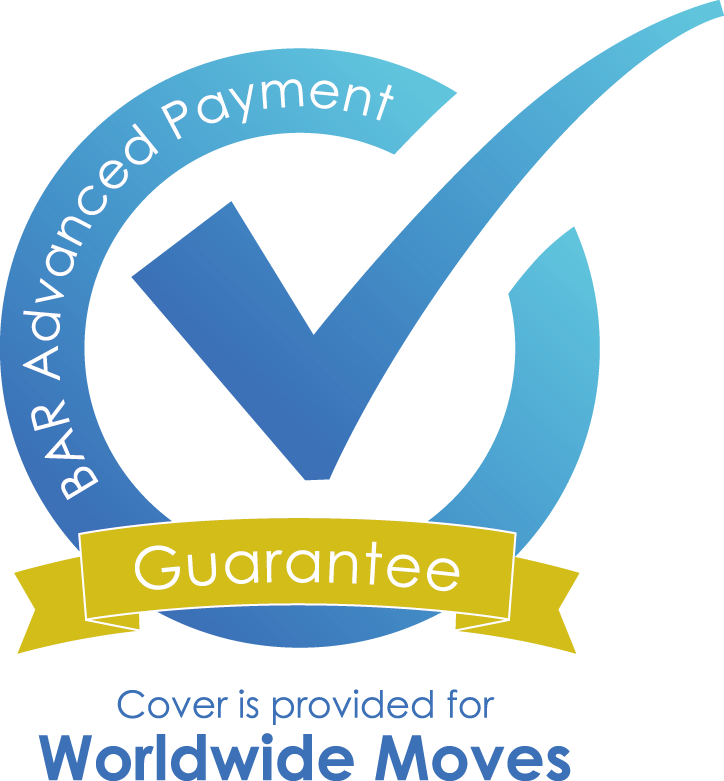Latest news from Eurogroup
A Guide to a stress-free migrating to Germany from the UK, Post-Brexit
22nd December 2023

Moving from the UK to Germany after Brexit can be a daunting task. In this blog post, we will provide you with a guide to help you navigate through the logistics of this transition. We have got you covered, from visas and driver’s licences to healthcare insurance and property ownership. There have been some regulatory changes to different aspects of moving from the UK to Europe post-Brexit, and we will walk you through all the essential information you need to know before embarking on this journey. Continue reading to make your move to Germany as seamless as possible.
Visas
Since Brexit regulations became official at the start of 2021, UK citizens are now subject to the same visa requirements as non-EU citizens when moving to Germany. This means that Brits need to apply for the appropriate visa or residence permit based on the purpose of their move, such as work, study, or family reunification.
Residential Visas
British Citizens can go to Germany for up to 90 days without any type of visa. However, you need to register your new residence with the authorities within 2 weeks of arrival and apply to the local immigration office for your residence permit within the first 90 days of your stay in Germany.
These visas are called Long-stay national visas (D-Visas) and can be used to obtain a residence permit for stays exceeding 90 days. To apply for permanent residency, visit the local immigration office after arrival.
Work Visas
There are several types of work visas available to UK citizens looking to move to Germany for work. It may also be necessary to gain a permanent residency permit before you can apply for a work permit; to be certain, it is advised to visit the German Embassy. Before moving to Germany, research your work visa options; they include the following:
EU Blue Card
The EU Blue Card is for highly skilled non-EU workers. To be eligible, you typically need a recognised university degree, a binding job offer with a specific minimum salary, and a work contract of at least one year.
Employment Visa
You can apply for an employment visa if you have a job offer in Germany. This type of visa is usually issued for a specific job and requires a binding job offer from a German employer.
Job Seeker Visa
The Job Seeker Visa allows individuals to come to Germany to search for a job. Once a job is secured, the individual can apply for a residence permit for employment.
Freelance Visa
If you plan to work as a freelancer or self-employed individual in Germany, you may need to apply for a freelance visa. Requirements often include proof of financial means and a viable business plan.
ICT Card (Intra-Corporate Transferee)
The ICT Card is for employees of multinational companies who are transferred to a German branch. It facilitates the transfer of managers, specialists, and trainees within the company.
Seasonal Worker Visa
This visa is for individuals who plan to work in Germany temporarily, typically in sectors such as agriculture or tourism.
Before applying for any work visa, you must gather the following information:
Job offer or employment contract
Passport
Qualifications
Proof of financial means
Health insurance
Once the information has been gathered, an appointment with the German Embassy must be obtained to gain your work visa. Check the official embassy website to be certain, as some visas can be processed online.
Family Reunion Visa
Family reunion visas can be obtained if a family member has full or dual citizenship in Germany. The family reunion visa is typically available to spouses, young children, and, in some cases, parents of foreign nationals residing in Germany.
These visas require sponsorship from a family member already living in Germany. The sponsor must have a residence permit or a long-term visa and sufficient living space in Germany. They must also demonstrate the financial means to support the family members.
In some cases, it might be required to have basic German language skills to be accepted for a Family Reunion Visa.
It is advised to apply for this visa type through the German embassy well before you plan to move, as they can take a long time to process. It is also important to note that you may be required to apply for permanent residency later on.
Healthcare
Post-Brexit, the EHIC (European Health Insurance Card) and GHIC (Global Health Insurance Card) cover only necessary healthcare during temporary stays. For UK residents living in Germany, it’s crucial to arrange health insurance to meet the requirements of the German system.
Upon arrival in Germany, individuals are required to register with a health insurance provider. This is typically a requirement for obtaining or renewing a residence permit. With valid health insurance, UK immigrants can access healthcare services in Germany through the country’s well-developed healthcare system, including visits to doctors, hospitals, and other medical facilities.
Germany has both public and private health insurance systems. Public health insurance is generally available for employees with incomes below a certain threshold, while those with higher incomes or self-employed individuals often opt for private health insurance.
For retirees, an S1 Form allows individuals to access healthcare in Germany based on their UK entitlements.
Driving
If you have a UK driving licence and plan to drive in Germany, it’s important to make sure that your licence is valid. Although the UK driving licence is recognised in Germany, as soon as your permanent residence is confirmed, your UK licence will only be valid for 6 months. You can exchange your UK licence for a German one and do not need to take a driving test. Visit your local citizen’s office in Germany to find out where to exchange your licence.
While it’s not mandatory, it’s recommended that you also obtain an International Driving Permit (IDP) in addition to your UK driving licence. This permit serves as an official translation of your licence and can come in handy in certain situations.
If you plan on shipping your car abroad, make sure that your car insurance is still valid before driving in Germany. Some insurance providers issue a “Green Card” as proof of valid insurance coverage when driving outside the UK. If you are purchasing a new car in Germany, you can find new local insurance providers, but you will need your German licence.
Banking
Banking has slightly been affected by Brexit, as British Banks holding branches or accounts in the EU may have been adapted or even closed. The good news? If you’re still living in the UK and are about to move to Germany, this will not affect you.
There are a couple of banking options to choose from when moving from the UK to Germany:
Open a UK bank account with no fixed currency (for example, Monzo). This can be used in many countries, and you will not face transfer fees or high exchange rates.
Open an expat account, like those offered by HSBC, that are multi-currency accounts for GBP, EUR and USD and are specifically for those moving abroad for work.
Open a new German account. Visit an in-person branch to verify your identity and proof of income. Keep your UK account and transfer your funds across – you could face transfer fees, but this is one of the most common options.
It is strongly advised not to keep your UK bank account as your sole source of funds while living in Germany.
When it comes to savings, you can still, more often than not, transfer your money to a different account overseas, post-Brexit. The UK Government states, “You can keep your ISA open, and you’ll still get UK tax relief on money and investments held in it. You can transfer an ISA to another provider even if you are not resident in the UK.” so long as you tell your ISA provider.
We recommend seeking professional financial advice before making your move to Germany to ensure a smooth and stress-free transition.
Our Quick Top Tips for Moving to Germany from the UK.
Learn about the education system if you are moving with your family or want to start a family.
Have a finance plan and open German banks on arrival to secure your finances.
Learn the language! Many people in Germany speak English, but to transition smoothly and encourage better integration into society, learn some of the basics!
Research important information such as visa types, the area, and culture long before your planned move.
Despite being technologically advanced, lots of German businesses still only accept cash – so don’t be caught out!
If you’re ready to move to Germany, don’t hesitate to contact a member of our team today. We are available to discuss services such as European Removals, Vehicle Shipping, Employee Relocations and complete Office Removals to make your transition as smooth as possible.





